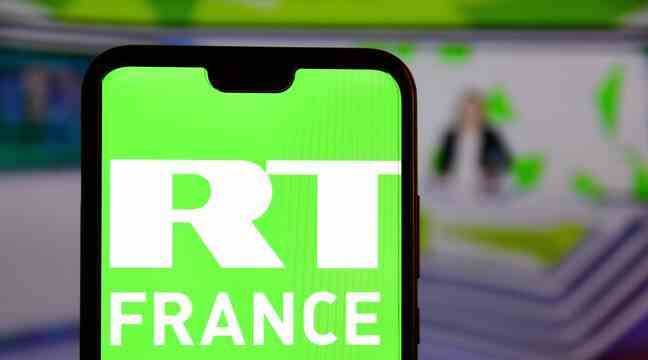Freedom of expression or propaganda? Since March 2, the RT France channel has stopped broadcasting. Any transmission and distribution in or towards the European Union is prohibited, as are other RT channels in Europe, as well as the Sputnik press agency. Since the end of its programs, RT France has published a petitionsigned this Friday by 35,000 people, denouncing a ban “in total contradiction with the principles of the right to information and freedom of the press”.
The channel, created in 2017 in France, considers that this is a “dangerous precedent” and presents itself as an alternative media, necessary for the plurality of the press. For her, the French government censors her, because her editorial line displeases, as with her coverage of the “yellow vests” movement. And to drive the point home, she believes that her ban, without proof of fault and without adversarial procedure, is not based on “no legal legal basis”.
FAKE OFF
There is indeed a legal basis to the exclusion of the channels of the RT group and Sputnik, financed directly by the Russian state. Announced on Sunday by the voice of Ursula von der Layen, President of the European Commission, the broadcast ban was published in the Official Journal of the European Union on 2 March, with immediate application in all Member States, including France. When questioned, the Commission indicates that this decision is based on the “general framework on European Union sanctions”.
The threat argument “against public order and safety”
Because it is well within the framework of the sanctions against Russia what is this ban all about? Thierry Le Breton, European commissioner for the internal market, expressed this very clearly on 1 March on RTL: “This is of a sanctions measure, it is based on a Council regulation which had been adopted in 2014 by the Member States” during the annexation of Crimea by Russia.
For the Commission and the 27, RT and Sputnik are media which, “placed under the permanent control of the Russian leaders”, carry out “propaganda actions” and “distortion” of the facts, they justify in the Official Journal of the ‘European Union. These bodies “directly and seriously threaten the public order and security of the Union”, adds Brussels in a press release.
A spokesperson explains to us that this is “an exceptional, targeted and temporary measure, taken in a very specific and unprecedented context”. And adds that the evidence of misinformation has been documented and debunked since 2015 by the European External Action Service, an EU body, on the website EUvsDesinfo. “This is not a measure against freedom of the press, also defends Pascale Joannin, general manager of the Robert Schuman Foundation, a European think tank. It’s against two Russian-influenced media. »
Unions of journalists in revolt
This decision still revolts journalism unions in France and internationally. The SNJ denounces “an act of censorship which reduces the pluralism of information”. The union sees it as “a dangerous shortcut” between the work of an editorial staff and the politics of a country. FO considers that this “immediately endangers the existence of RT France, which employs some 175 employees including a hundred journalists, holders of press cards”. “We understood that we were in wartime and that war is the enemy of press freedom,” insists Emmanuel Vire, secretary general of the SNJ-CGT. In Russia, the dictator Putin is in the process of liquidating what was left of the independent press. And what do we do in Western democracies? We do the same, without contradictory debate. »
Same story on the side of the International Federation of Journalists, which represents 187 unions and associations: “We are simply witnessing an impoverishment of the media spectrum for political reasons”, supports Anthony Bellanger, its secretary general. He also underlines a “really worrying” legal problem, because the Commission does not have the competence to regulate the media. This is managed by a specific structure in each country – Arcom (ex-CSA) in the case of France. “We can imagine that, if there had been a possibility before, the Commission could have banned propaganda media that we have seen in Hungary, sometimes in Poland, he continues. She refrained from intervening on this aspect. »
On the side of RT France, Lucas Léger, union representative FO, expresses his “astoundment and the impression of being the victim of an injunction, of an ukase”. He indicates that the management of the channel is studying the possibility of recourse.

